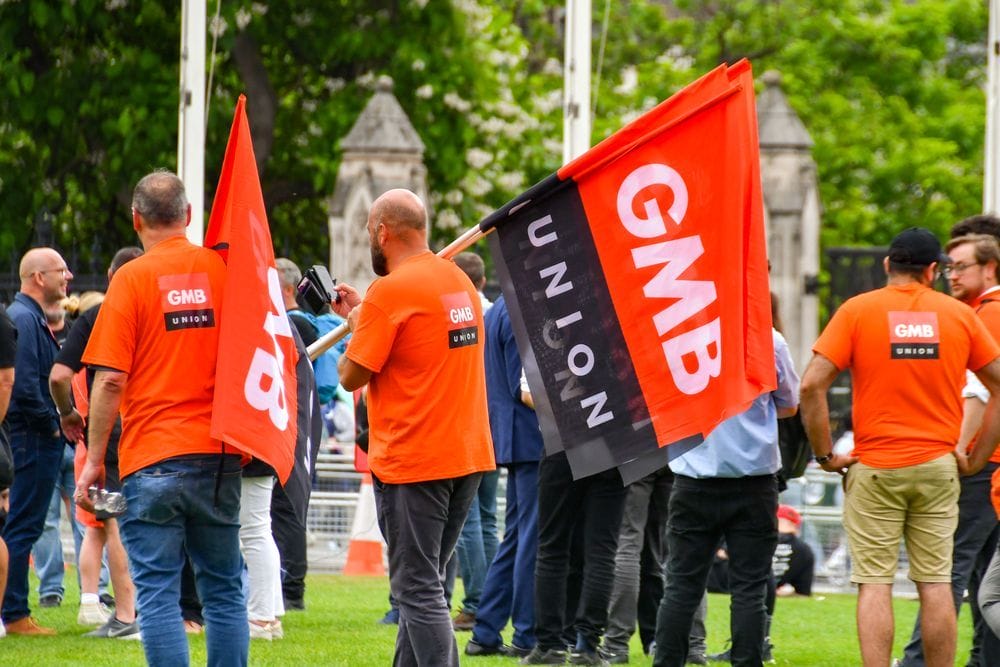Unions are calling for reduced business rates and better worker protection. It might be in the interest of traditional retailers to support them.
© GMB Union
We are used to seeing lists of the retailers that have gone out of business over the last decade, or estimations of how many individual stores have closed. But new figures out this week from the GMB Union put a more human cost on changes that have caused a fundamental reset of the retail economy.
GMB Union: “More than 420,000 retail jobs lost.”
According to the GMB, more than 420,000 jobs have been lost in the UK retail sector since 2010, representing a decline of 28.4% in the workforce. The figures were announced to coincide with the closure of the last trading Wilko stores, a business failure that accounts for 12,500 of those lost jobs.
Redundancy is difficult for anybody, but those at the lower end of the economic spectrum have it harder than most – especially in a contracting industry – so each of those job losses means a story of hardship. Are these job losses really a necessary part of progress?
When we analyse the retail sector we tend to focus on changing consumer habits, the growth of online competition, and the inexorable progress of new technology, as the causes of this kind of disruption.
But the GMB is calling for plans to tackle these issues – and the human suffering that results – at a government level. It wants an end to the current system of business rates and more protections for workers, to help protect both employees and physical stores.
This goes against the grain for most in the business community, who value a light touch when it comes to state intervention, but it might find growing support with voters and consumers who are getting fed up with the status quo.
Many of those voters and consumers recognise that there is a simple but crucial imbalance in UK retail, and light touch legislation has failed to create an even playing field.
‘Traditional’ retail, from shops, is subject to high business rates and – like all of us – the UK’s overheated property market. Newer, online competition doesn’t require expensive property or as many employees, being based in giant warehouses that are partly staffed by robots.
But that new business model, and undoubted efficiency, is not the only reason that online retailers perform so well at the expense of traditional rivals. There is an additional, one-sided layer of cost.
The Guardian: “Amazon’s main UK division pays no corporation tax for second year in a row.”
For example, Amazon has paid no corporation tax in the UK for two years, and received tax credits of £7.7m last year. Amazon is not alone. The complex, international structure of many giant online companies allows them to pay relatively low taxes.
In contrast Tesco paid £704m in business rates alone for the year ending in February, plus corporation tax of £123m. It paid £1.7bn in taxes altogether.
Metro: “M&S paid more UK corporation tax last year thank Amazon did in two decades.”
These are not new arguments. Even before the Covid-19 lockdown, it was reported that M&S was paying more tax in one year than Amazon had in two decades.
So is the gradual erosion of UK high streets really just down to dynamic new business models and consumer preferences? Perhaps if online and physical retailers faced comparable tax burdens we could answer that question more accurately.
In the meantime we should recognise that bricks and mortar retailers have a substantial additional burden when it comes to carrying out business – and that the contribution they make to wider society, through tax, is not matched by the online companies which are taking over.

